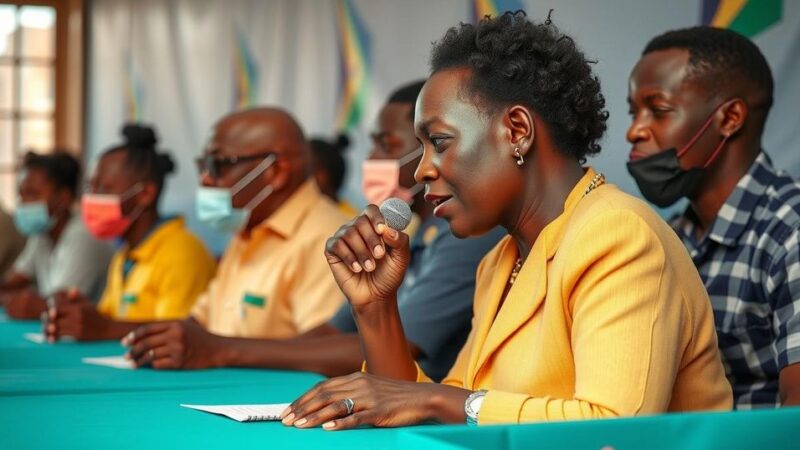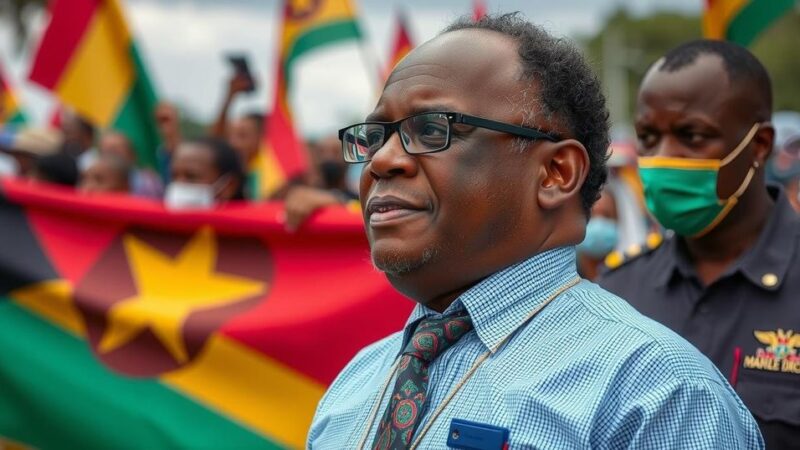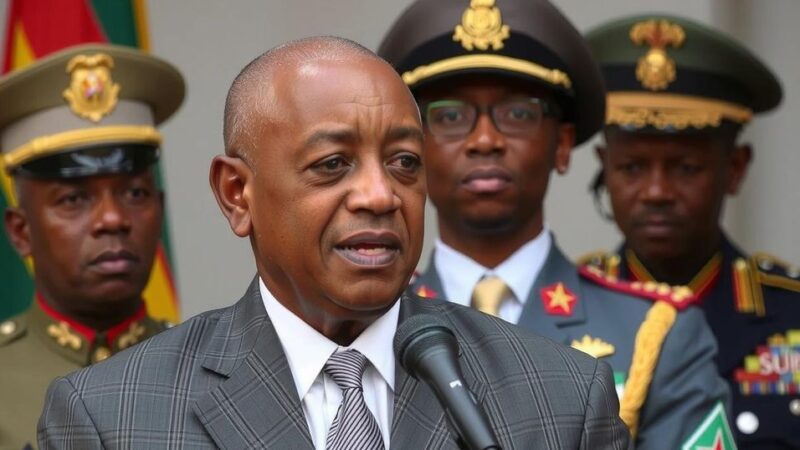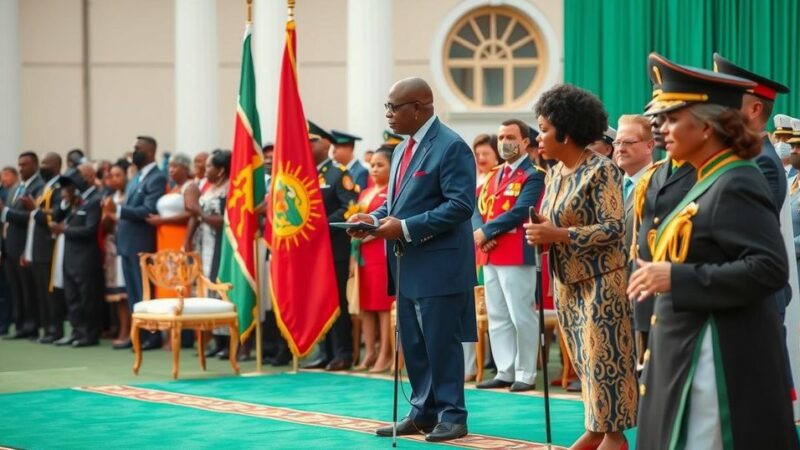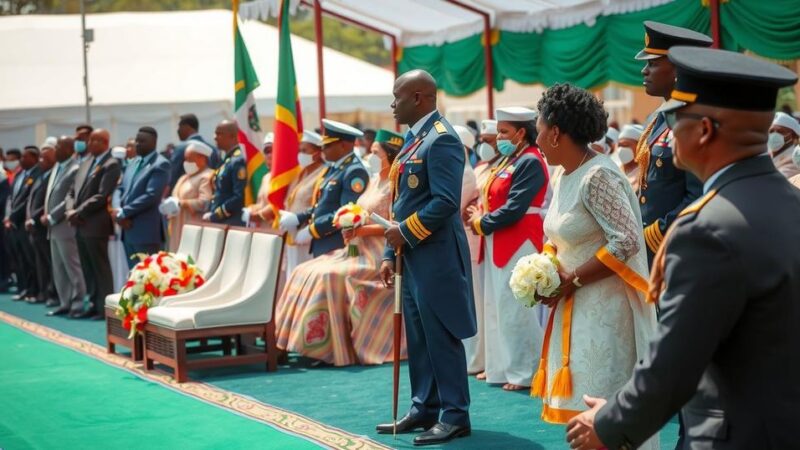Gabonese authorities announced that the new constitution was overwhelmingly approved in a referendum, with 91.8% backing out of 53.54% voter turnout. The constitution imposes presidential term limits and eligibility requirements. The vote occurred under heavy official propaganda, raising concerns about transparency in the electoral process amidst a political climate shaped by a recent military coup.
Gabonese military authorities have announced that a new constitution received overwhelming approval in a recently held referendum, reflecting a significant transformation for the resource-rich country. Provisional results indicate that an impressive 91.8 percent of voters endorsed the new framework, which proposes limitations on presidential terms, the elimination of a prime ministerial role, and stringent eligibility requirements for presidential candidates. The voting process, which experienced a turnout of 53.54 percent, reportedly encountered no major disturbances across the polling stations. However, the referendum campaign was heavily influenced by the ruling junta’s propaganda, raising concerns about the electoral integrity and transparency. Critics argue that the constitution serves the interests of the junta and reinforces potential authoritarianism in governance.
The military junta, which seized power in August 2022, emphasized the importance of the referendum for Gabon’s political future. The transitional president, Brice Oligui Nguema, proclaimed the vote a substantial advancement, although there exists skepticism regarding the constitution’s implications for democracy in Gabon. Observers have noted the need for international scrutiny to ensure that the electoral process remains credible, especially given the historical context of political turmoil in the nation following the ousting of former president Ali Bongo Ondimba. Amid rising public concerns regarding economic issues such as unemployment, the leadership is working to assert confidence in its governance approach.
The political environment in Gabon has undergone considerable upheaval since the military coup that ousted President Ali Bongo Ondimba in August 2022. The new junta has sought to establish a constitutional framework that not only outlines presidential term limits but also fosters national stability. The referendum represents an attempt by the transitional government to legitimize its rule and gain popular support through a perceived democratic process. Furthermore, with a significant portion of the electorate expressing optimism about the country’s trajectory, there exists a complex interplay between governmental change and public sentiment, particularly regarding socioeconomic issues.
In summary, the provisional results of Gabon’s constitutional referendum indicate a significant shift in governance, with overwhelming support for a new constitution that limits presidential power. While the junta celebrates this approval as a step forward, concerns about the implications for democracy and governance remain prevalent among critics, who fear the potential for increased authoritarianism. The government must now navigate the delicate balance between establishing legitimacy and addressing the pressing socioeconomic challenges faced by its citizens.
Original Source: www.tiogapublishing.com


